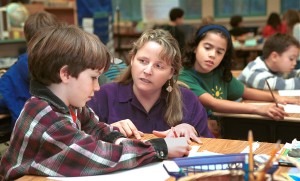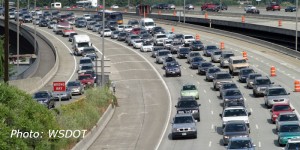Dear Friends and Neighbors,
The first few weeks of session have been very busy and fast-paced as always, but I am so thrilled to have visited with the dozens of constituents who made their way to Olympia for many advocacy days, including Martin Luther King Day. The 36th district’s residents are strong advocates for the issues that matter to all of us and affect our most vulnerable communities. Here are some of the topics that your colleagues and neighbors are making a top priority in Olympia.
 Food Security: We need policies and new legislation that create access to safe, healthy and sufficient food and water for all Washingtonians
Food Security: We need policies and new legislation that create access to safe, healthy and sufficient food and water for all Washingtonians
I introduced HB 1710 to assess the economic impacts of local food supply networks for farms to schools, local grocers, farmers’ markets and food banks; and to foster in-state production, processing and distribution of locally produced foods. This bill, together with other legislation introduced by my colleagues, will shape new policies to expand access to healthy foods in every community. We need to build more resilient local economies where we buy local, support the jobs that strengthen our communities, and sustain healthy families.
 Education: Big Policy Choices and Budget Decisions Ahead: Funding K-12 smaller classes, teacher salaries, new school construction and renovations, and student achievement standards will dominate discourse in the coming weeks, but public education includes early education through higher education.
Education: Big Policy Choices and Budget Decisions Ahead: Funding K-12 smaller classes, teacher salaries, new school construction and renovations, and student achievement standards will dominate discourse in the coming weeks, but public education includes early education through higher education.
I’ve spent the past two years studying how we fund early childhood education, K-12, and higher education. Many of you have shared your personal experiences and those of your children and grandchildren.
Here’s where we are today: we do not have equal access to educational opportunities in this state. Children in poverty are at greatest risk of not finishing high school. High school graduation rates are terribly uneven, with some students of color showing alarming drop-out rates above 50 percent in some communities. And despite tuition freezes in higher education for the past two years, the numbers of students qualifying for but not receiving state financial aid based on need has actually increased, not decreased.
Equal access to educational opportunities for all our people must be our highest priority if we are going to be a state where every community thrives. Veterans, immigrants, first-generation college students, woodworkers and metal workers who hope to pursue jobs in the trades, dislocated workers and individuals exiting the criminal justice system, re-entering the community, hoping to change their futures, aspiring musicians and artists or climate and computer scientists, highly capable students, and children with disabilities: every student has a right to a public education. We simply must fund the educational institutions that encourage our people to learn and find rewarding work with good wages.
Transportation: Four Senators – two Republicans and two Democrats – recently unveiled a new transportation plan. I am still analyzing it. But after some review, it is extremely disappointing that there is no evidence of a strategic vision for a more resilient transportation network.
We can’t afford to spend $15B, and reach 2031 still unprepared for the 21st Century’s economic and environmental conditions. We must look ahead to a very different future, shaped by our increasing state population and the increasing fast-paced ways in which we need to move people and goods.
It is time to define the transportation systems that will support our economy and way of life through 2075, and then determine how we’ll get there and how much we must spend. When we build transportation infrastructure, it is time to take into consideration critical risks to these investments: earthquakes, floods, rising sea levels, fires, bridge failures, electrical grid resilience, and others. We need to define our anticipated dependence on air, land, and sea transportation corridors to move people and freight.
Suction Dredging: Saving Salmon, Steelhead and Trout Fisheries for Future Generations: HB 1162, The Give Fish a Chance Act, had a public hearing in the House Agriculture & Natural Resources Committee.
One of your neighbors, a 36th District constituent, came to me 18 months ago to tell me about something happening in Washington’s rivers and streams: suction dredging. This is motorized mining, using hoses hooked up to motors to dredge for gold and other metals in riverbeds and spawning grounds. My husband and I first came to Washington in 1988 as tourists to fish for king salmon, and we were hooked. But all over the Pacific Northwest, our fisheries are facing enormous pressures from mining, pollution, habitat degradation, and deforestation.
It turns out that Oregon and California both placed a moratorium on suction dredging. Idaho just banned it as a violation of the Clean Water Act. But in Washington State, it is not only legal. It is essentially unregulated. Fishers, hunters, guides, and tribes all have rules requiring licenses and fees. Suction dredgers have guidelines and pay no fees.
My bill calls for the Department of Fish and Wildlife to require a license, collect the same fee as fishers and hunters pay, and place a moratorium on suction dredging while scientists examine the effects on endangered fisheries. It is time to take responsibility for ensuring that future generations also know what it feels like to go into public parks and remote waters in pursuit of the fall chinook run or the elusive steelhead.
Thanks for joining us for 36th District Day in Olympia! I am glad many of you made your way to Olympia to celebrate the great district we share.My seatmates, Senator Jeanne Kohl-Welles and Representative Reuven Carlyle, and I enjoyed spending time with you on President’s Day!
Please keep in touch with me by email, phone, or when you visit Olympia. Your ideas and perspectives are always welcome as we navigate important budget debates in the coming weeks.
Your voice in Olympia,
Gael

